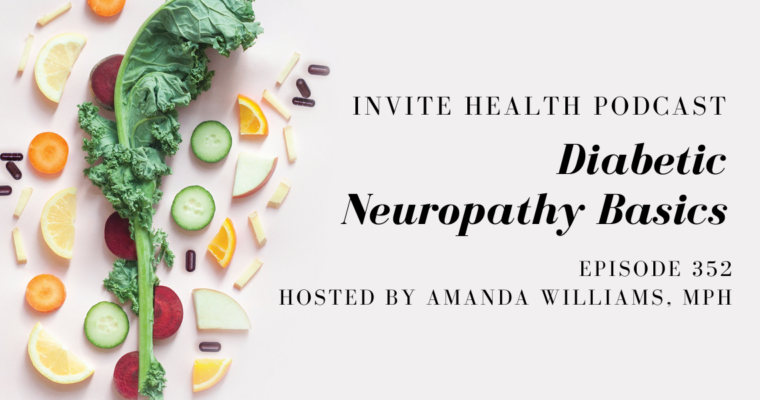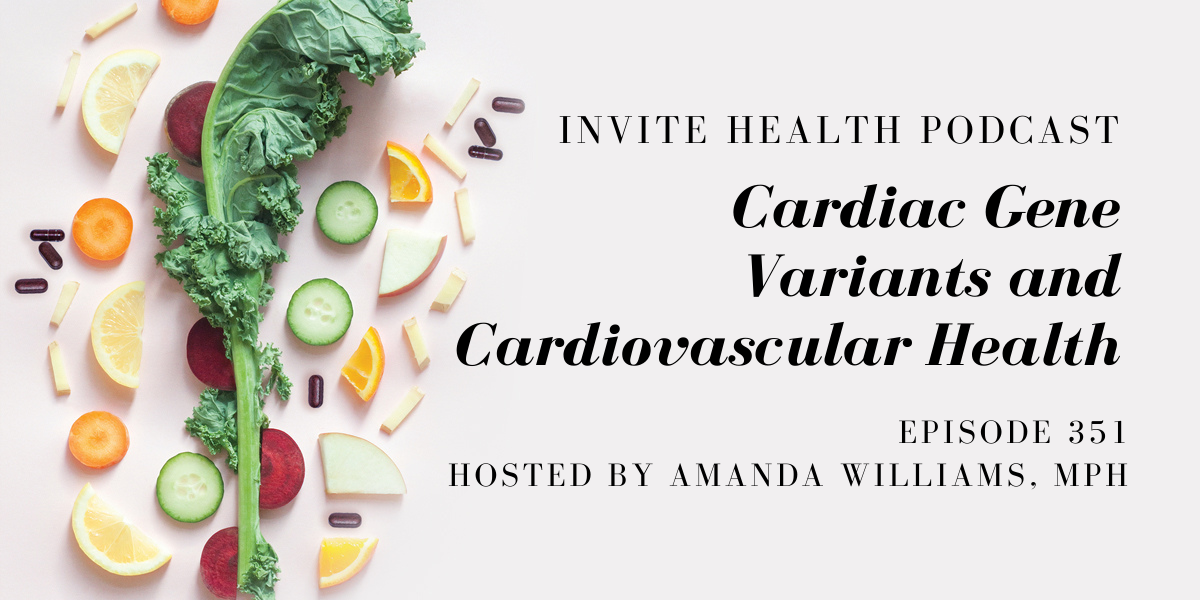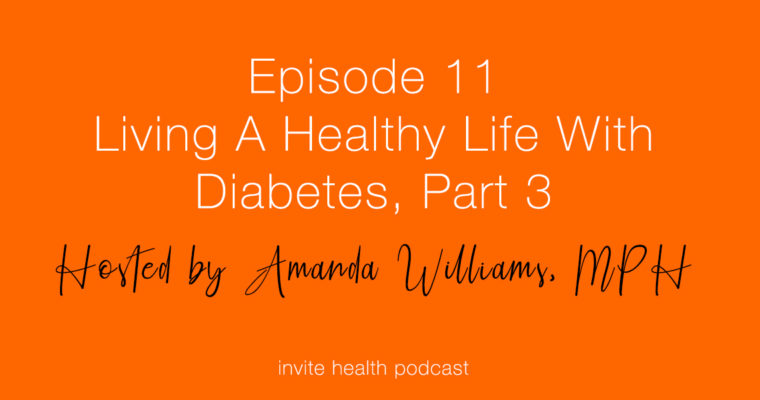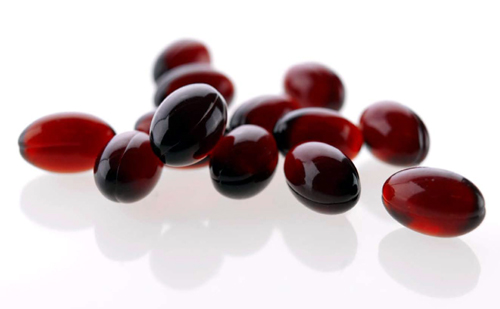cardiovascular health
Invite Health Podcast, Episode hosted by Amanda Williams, MPH
Subscribe Today!
I frequently talk about being proactive as opposed to being reactive. Today, I want to talk about being proactive when it comes to your cardiovascular health.†
How do genetics play into cardiovascular health?
Cardiovascular disease can be easily influenced by insulin resistance, high blood pressure, dyslipidemia, inflammation and more. If we have a tendency to have thicker or thinner blood, for example, this can have an impact on our cardiovascular health. We could also look at why one person might develop a blood clot while someone else might not or why one person’s cut bleeds for longer than another’s.†
There are different factors that can impact all of these things, such as daily exercise and following a healthy diet, but we can also look at genetic predispositions to cardiac problems. This is important because we know that cardiovascular disease is the leading contributor to both morbidity and mortality, with over 17 million deaths occurring annually due to cardiovascular disease.†
HELPING THE HEART STAY HEALTHY – INVITE HEALTH PODCAST, EPISODE 244. Listen Now>>
As we get older, the risks to our cardiovascular health begin to go up, but we can now look at specific, inherited genetic components that might make a difference in terms of how we exercise, what we eat and what supplements we’re taking.†

Learning about and understanding your genes
At InViteⓇ Health, we offer a Cardiac Health Test, which looks at eight different genes that can indicate if you have a genetic variant that can increase your cardiovascular event such as a heart attack or stroke. Now that we can pinpoint specific genes that may be problematic, we have the opportunity to be proactive and make changes that will benefit our health ahead of time. We can’t change our genes, but we can change up what we’re doing to address any gene variants.†
THE BASICS OF INVITE HEALTH’S GENETIC TESTING – INVITE HEALTH PODCAST, EPISODE 340. Listen Now>>
These genes can help us to indicate if we need to work on our body’s ability to metabolize fats, manage cholesterol levels and more. They can also help us understand what supplements we may need to incorporate into our routine. Beetroot extract, for instance, can assist with the natural production of nitric oxide. Arginine can help to enhance nitric oxide production. Adequate amounts of magnesium, omega-3 fatty acids and resveratrol are important as well. This is what it means to be proactive about your health.†
In this episode, Amanda Williams, MPH explains the importance of understanding your body’s genetics when it comes to cardiovascular health. She details the capabilities of our Cardiac Health Test and discusses how this can help us be proactive about our health.†
Key Topics:
- What is cardiovascular disease?
- Details about our Cardiac Health Test
- The importance of the APOE gene
- Nutrients that may help with cardiovascular health
Thank you for tuning in to the Invite Health Podcast. You can find all of our episodes for free wherever you listen to podcasts or by visiting www.invitehealth.com/podcast. Make sure you subscribe and leave us a review! Follow us on Facebook, Twitter and Instagram at Invite Health today. We’ll see you next time on another episode of the Invite Health Podcast.










